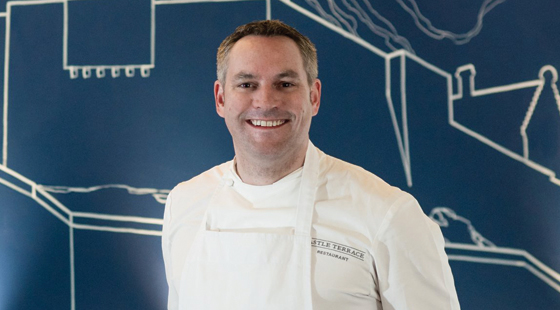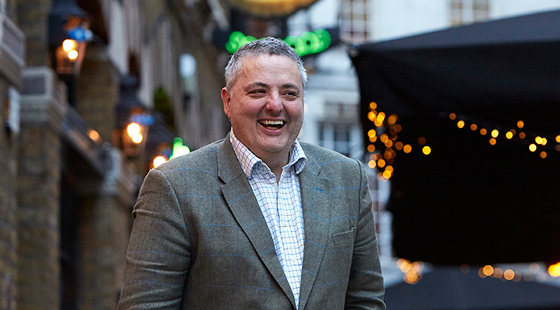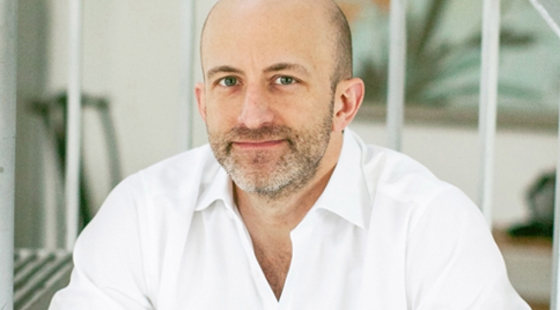What's in store for hospitality in 2017?
Last year was about as unpredictable as it gets, so trying to forecast what may happen in 2017 is a particularly challenging exercise. Nonetheless, we asked respected figures from across the world of hospitality for their thoughts on the coming 12 months. This is what they said…
Bill Toner, group CEO, CH&Co
2016 was a positive year for us. A highlight was our merger with the Brookwood Partnership. This has settled down well, and it's been great working with our new colleagues. Of course, the year threw some political curve-balls we weren't anticipating 12 months ago. As a nation and as an industry, things are much less certain this year, and there are more questions than answers. What will Brexit look like, and how will it impact immigration, the economy, food prices, and so on? What direction will Trump's America take? And, will the impending elections in Europe further shake the status quo? It's not all worry, though. One constant is the creativity, innovation and resilience of the foodservice and hospitality industry. At CH&Co Group, we're looking forward to another positive year. We'll keep a keen eye on growth opportunities while innovating and delivering on our promises to clients. We'll also continue to invest in our people, nurturing talent and working in order to attract new blood into the industry.
Ian Thomas, CEO, Bartlett Mitchell
Julian Fris, director, Neller Davies
Next year is likely to see more consolidation of the marketplace, and there will be more acquisitions of smaller businesses. Margins have become increasingly tighter, making it harder for smaller companies to grow, so many will be looking for investment to enable them to develop. The need to support smaller businesses will be greater than ever before to enable continuous innovation and market movement.
Health and fitness was a key trend in 2016, and it shows no sign of dying down. Eating well is fashionable, and people's dining-out choices will continue to focus as much on the nutritional value of their meal as they do on its flavours. However, as food education evolves, we'll see people leaning less towards rigid exclusionary diets (gluten-free, vegan, paleo, etc) and more towards general wellness and a healthy and moderate diet. With a complex, unforgiving political climate on both sides of the Atlantic, young generations in particular will look to inexpensive treats such as meals out with friends and family as a form of self-care, with ever increasing interest in ethical and sustainable food options as more people embrace conscious consumerism.
Dominic Jack, chef-patron, Castle Terrace, Edinburgh
2016 was an exciting year for the Scottish hospitality industry and I'm looking forward to 2017. Dining out encompasses more than just the food. It's about creating the perfect atmosphere and offering guests an experience that can't be replicated elsewhere. I like to combine unusual flavours and take classic, everyday dishes and add a little twist to create something extraordinary. For me, 2017 is about continuing to surprise and delight our guests; not just delivering outstanding food, but also experimenting with textures, smells and visual presentation to create the ultimate dining experience from the moment guests enter the restaurant.

Steve Connell, executive chef, the Brewery
Pulses and grains like bulgur, buckwheat and quinoa are seeing a resurgence and will continue their rise. Packed full of B-vitamins and high in fibre, they're a popular substitute for carb-loaded potato and meat-heavy dishes. We're an increasingly health-aware nation, and caterers are adapting their menus to suit. 2017 will see the rise of faux-meat dishes and vegan desserts. Vegetables are being used in increasingly diverse ways, from beetroot in sorbet to vegan chocolate for ganache, and jackfruit, chickpeas and mushrooms as substitute for steaks. Another development will be the repurposing of rinds, stems and skins. There's huge pressure on kitchens to recycle, so expect more pickled dishes, spiralised vegetable stalks and blitzed cauliflower stems for a healthy rice substitute.
Richard Corrigan
Vegetables are going to have a big say on menus around Britain. The big lumps of protein that we love and adore will still be there but they will shrink further. There's a revolution happening in bars - they're like little laboratories! Youths want to be sipping cocktails instead of a glass of wine. The restaurant business is all going to be all about service. We want to go back to people running good front of house, with chefs cooking great food coming from the gardens and orchards. The future looks great. There are smart and brilliant people in the catering industry. Chefs and restaurateurs are financially savvy, understand business and are creative on social media. We all expect the first quarter of 2017 to be tough. Don't go out and buy Ferraris this year - make sure your veg man, butchers and gardeners are paid. Move carefully, very carefully, as 2017 could be a very tricky year for us all.

Peter Ducker, chief executive, the Institute of Hospitality
Brexit will continue to cause uncertainty. The numerous general elections in Europe will affect the value of the euro, but don't ask me which way! The American market will be strong, although President Trump will champion staycations as an act of patriotism. We will still be short of chefs, and no magic solution will be found. F&B will continue to look at streamlining food production and designing menus around processes. Hospitality will continue to gain popularity as a career of choice for graduates from a wide range of disciplines, as macro forecasts highlight the growth and stability of the industry. More ambitious hospitality professionals will realise that their best shot is taking control of their own career development to achieve their ambitions, and flock for a copy of the Institute of Hospitality management standards, relaunched this month.
Rob Payne, CEO, Best Western Great Britain
Overall, I'm optimistic for 2017. Despite the challenges of Brexit, I believe it will force us to address inefficiencies in our industry and compete even harder. The devalued pound gives us a short-term opportunity to impress domestic and international travellers and turn them into repeat bookers of great British stays. The message has never been clearer: we need to wow now, and that's what we are aiming to do at Best Western. We will also see the continued growth of the independent hotel sector. In a world of conformity, there is a celebration of difference and the anti-cookie cutter approach is allowing individuality and independence to shine through. Hoteliers who offer unique experiences and excellent customer service will continue to outshine the big chains. One big challenge for 2017 remains making our industry a first-choice career. The introduction of the national living wage has brought pay parity; now we need to push on and persuade parents and students alike that ours is an industry for life, not just for Christmas.
Sarah Whiddett, head of insight and customer experience, Bidvest Foodservice
The idea of 'backing British' is growing in a post-Brexit world, with 58% of shoppers influenced by the red tractor logo when buying food. More consumers will be supporting regional British products that offer heritage, authenticity and provenance, which are made with care and craft. This year is also all about the Far East: 40% of consumers are interested in widening their consumption of new flavours to include Japanese, and traditional oriental flavours are set to expand to include Korean and other Asian food origins.

Adam Rowledge, general manager, Georgian House Hotel
Following the introduction of the apprenticeship levy, the impact of the national living wage increase and significant increase in business rates, hotels are going to have to get even smarter. Hotels will need to focus on retaining talent, as it has been reported that we'll see a slowdown in the supply of EU workers due to exchange rate. To prosper in the long term, we're going to have to control costs better than ever but at the same time invest in the right places.
Danny Pecorelli
I think 2017 will be a good year. The weak exchange rate will make the UK more attractive for both leisure and the MICE [meetings, incentives, conferences, events] market. The flipside is that inflation is going to ramp up in food and drink, along with heavy wage inflation, which means a lot of work for operators to ensure their offering is priced competitively. Attracting top talent is getting ever more competitive. The market will continue to polarise between commoditised products and the experiential offerings, with consumers' definition of luxury changing at a fast pace. Brexit will rumble on in the background and we will have a few hand grenades thrown at us as an industry, but if you've got a good offering and are focused, enjoy a good 2017.











